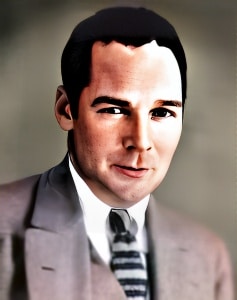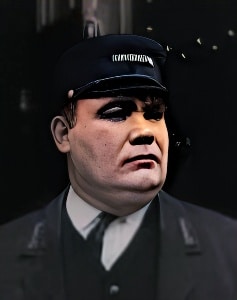 Louis Dumar, a name not widely remembered today, was a versatile and talented actor who made significant contributions to the early years of American cinema.
Louis Dumar, a name not widely remembered today, was a versatile and talented actor who made significant contributions to the early years of American cinema.
His career spanned both the silent film era and the transition to sound cinema, showcasing his adaptability and talent in a wide range of roles. One of his notable appearances was in the 1922 silent film “ Salome,” directed by Charles Bryant, which added to his legacy in the world of cinema.
Dumar’s journey into the world of entertainment began on the stages of vaudeville and theater, where he honed his acting skills and developed a strong foundation in the performing arts. With the advent of motion pictures in the early 20th century, Dumar made a seamless transition into silent cinema, marking the beginning of his cinematic journey.
One of the most remarkable aspects of Louis Dumar’s career was his ability to effortlessly adapt to various genres, showcasing his versatility as an actor. He was equally comfortable in comedic and dramatic roles, which made him a valuable asset to filmmakers seeking versatile performers.
During the silent film era, Dumar became known for his work in comedy. He often portrayed characters who added humor and charm to the films in which he appeared. His comedic timing and physical comedy skills endeared him to audiences, making him a reliable presence in the realm of silent comedy.
Despite his comedic prowess, Dumar was not limited to a single genre. His willingness to explore different facets of acting was demonstrated in the 1925 silent film “The Golden Bed,” directed by Cecil B. DeMille. In this film, Dumar showcased his dramatic talent, marking a departure from his comedic roles. His performance in “The Golden Bed” displayed his ability to adapt to diverse genres and add depth to the characters he portrayed.
The advent of sound cinema in the late 1920s presented a challenge for many silent film actors, but Dumar successfully made the transition. His ability to work seamlessly in both silent and sound films illustrated his adaptability as an actor. Whether it was slapstick comedy or a dramatic character, Dumar’s performances added value to the films in which he appeared.
While Louis Dumar’s contributions to the film industry are not widely celebrated today, they were notable during the early years of American cinema. His performances, whether comedic or dramatic, helped shape the evolving medium, and his ability to adapt to changing cinematic landscapes was a testament to his dedication to the craft of acting.
As the film industry continued to evolve, Dumar’s career extended into the early days of sound cinema, with his final film roles in the early 1930s. While his name may not be as familiar as the leading stars of his era, his versatile contributions to both the silent and sound film eras remain a testament to the significant role character actors played in the development of American cinema.
Returning to his role in “ Salome” (1922), directed by Charles Bryant, the film is celebrated for its provocative and artistic interpretation of Oscar Wilde’s one-act play. In “ Salome,” Dumar portrayed a character that added depth and authenticity to the film’s enigmatic and evocative atmosphere. His participation in this cinematic interpretation of a timeless and provocative tale further demonstrated his versatility as an actor.
Today, Louis Dumar is a largely forgotten figure in the annals of film history. Nevertheless, his performances, be they in comedy or drama, remain a part of the rich tapestry of early American cinema. His legacy is a testament to the many talented character actors who made essential contributions to the industry during its formative years.




